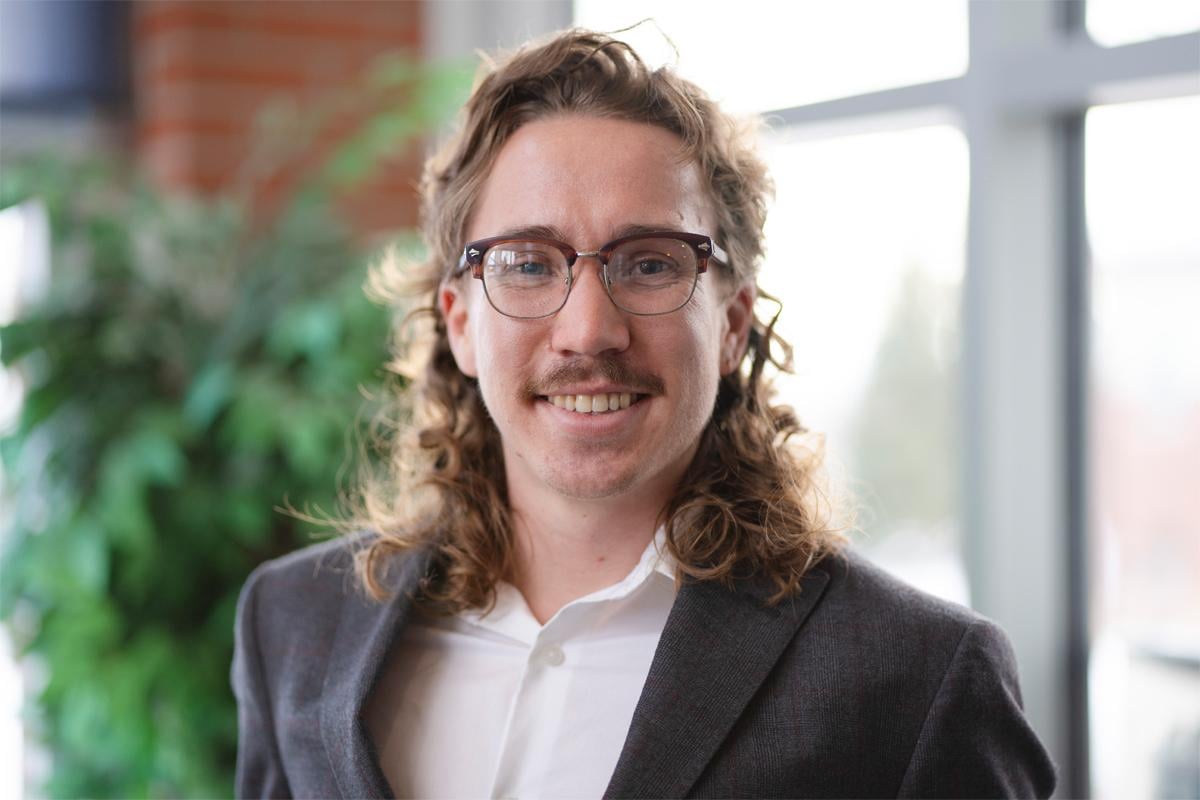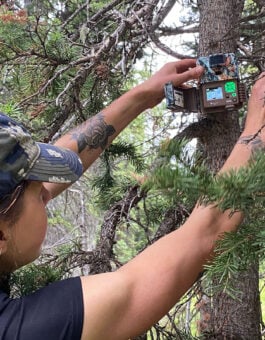It’s no secret that rural parts of the world are facing many challenges when it comes to healthcare. Studies show that rural residents have significantly worse health outcomes than their urban counterparts. At the same time, the last decade has seen rural hospitals close their doors at an accelerated rate while Covid-era stressors have exacerbated a perennial shortage of healthcare professionals.
But in the rural communities surrounding Western Colorado University, and across the Western Slope, that’s starting to change. Two years ago, after the Colorado Legislature passed a bill to increase the number of healthcare professionals practicing in the state’s rural areas, Western received additional funding for its Master of Behavioral Science (MBS) in Rural Community Health program. And it’s already making a big impact.
Just ask MBS student Cole Cooper.
Filling gaps in the health care needs of local Indigenous community
Among Cooper’s many areas of interest related to community health are the healthcare needs and beliefs of indigenous populations. Gunnison, as it happens, has the largest Cora diaspora in the world.
The Cora are a people indigenous to Mexico’s Nayarit State, and many come to the U.S. to find a better life. The journey is long and can be traumatic for those who leave their families and communities behind. When they arrive, they often lack proper documentation and find themselves balancing between three cultures: North American, Mexican, and their native Cora, which has a distinct language and customs.
As a result, Cooper said, their healthcare needs can be multifaceted and often go unmet. So, as part of a final practicum project, he developed a plan, with support and funding from Gunnison Valley Hospital, to connect with the Cora community and learn what he could about their healthcare needs.
“What we found was that they believed there are spiritual roots to illness,” he said. “They have a lot of ceremonies and beliefs in their culture that they believe sustain well-being, and when folks can’t participate in those ceremonies or don’t uphold certain vows, that can cause or contribute to illnesses.”
Cooper found that, according to Cora tradition, the best way to remedy such ailments is to visit a ‘curandero,’ or healer. Unfortunately, the closest curandero to Gunnison lives more than an hour and a half drive to the west, which often isolates those in need from what they believe is a cure.
He also found that some of the Cora he spoke with showed signs of depression related to traumatic experiences, like losing loved ones to Cartel violence, postpartum depression, and a profound sense of disconnection from their Cora culture.
“From the folks we spoke to, it doesn’t seem like they talk about mental illness, or people reported that they feel stigmatized talking about mental health. They don’t have a word for ‘depression’ in the Cora language, and mental illness is often seen as something affecting a ‘crazy’ person,” Cooper said. “We would like the Cora community to know more about mental health and feel supported in discussing it. It’s also important we figure out what a helpful mental health treatment would look like for them.”
Through his research, Cooper found that the healthcare the Cora receive in Mexico combines elements of Western and traditional medicine in a hospital staffed by doctors who work alongside curanderos and herbalists. The Cora he spoke with aren’t opposed to Western medicine but require some education around mental health and culturally sensitive treatments that address what they see as the root cause of an illness.
The first step in that direction will be in March when he presents his report to hospital leaders, county officials, and the Gunnison community. Cooper hopes that conversation will lead to a second phase of research, when they can collaborate with the local Cora community to develop an understanding of, and treatments for, mental health and close some of the healthcare gaps he’s finding.
“[Cole’s] project is, fundamentally, all about listening with real empathy to what they believe about mental health and healing,” the program’s co-director, Matt Aronson, said. “I think it’s heartening that our local behavioral healthcare providers are eagerly learning from his research, too, especially about how they can expand access to culturally appropriate mental health services. They may even need to change the kinds of services on offer for better alignment with the needs of our Cora neighbors.”
Rural Community Health Program is ‘aimed at empowering communities’
Now, after the first cohort graduated last May and with the program entering its third year of funding, MBS in Rural Community Health co-director Jessica Eckhardt points to Cooper, as well as others in the program who have worked with elderly and food-insecure populations, as proof that the legislation is working as intended.
“I think a unique feature of our MBS program is that most of our students do live in the Gunnison Valley, but others live in rural areas elsewhere on the Western Slope,” she said. “They’re required to partner with community organizations where they live and do research with the end goal being actionable recommendations that will improve community health and wellness.”
Western’s MBS program is one of 12 programs around the state that receive funding through Colorado Senate Bill 22-172 and is the only program focused on rural behavioral health. The legislation requires that 65 percent of the funding go to scholarships for students committed to working in rural areas of the state for at least two years.
Among eight students currently enrolled in the program, most come from social science undergraduate programs and are well-positioned to work in a variety of fields in government or the non-profit sector, doing research or providing direct services in health outreach and promotion when they graduate.
“These students will need to have strong connections with community organizations. So much is predicated on the work they do with those organizations,” she said. “Their projects are aimed at empowering communities and shedding light on the challenges those communities face. Together, they devise solutions that will improve health and well-being.
To learn more about Western’s accelerated MBS in Rural Community Health program visit the program webpage.
Author Credit: Seth Mensing
Photo Credit: Olivia Reinhardt


